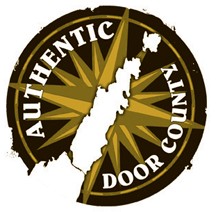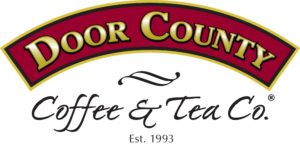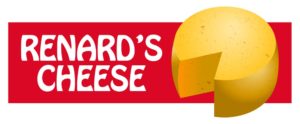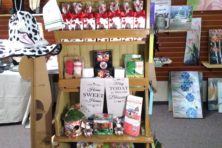Authenticating Door County Products
- Share
- Tweet
- Pin
- Share

Stand in the aisles of a store in Door County for a few minutes on a busy July afternoon and you will likely catch the following scene.
A young woman will pull an item from a shelf and call to her mother, “Mom, look, they have Door County [insert product here]!”
It might be a salsa, a jam, a dipping sauce, or any number of items that some company has stuck a Door County label on. Many of these items are produced right here on the peninsula, like maple syrup from Jorns’ Sugar Bush or Door County mustard. But many other products that the average shopper assumes are locally produced are actually just products made elsewhere and packaged with a Door County name or private label.
That doesn’t mean they aren’t quality products – most of them are.
Marit Virgin, manager at Weinke’s Market on the boarder of Door and Kewaunee Counties, said about 85 percent of the market’s products are made there. But they carry private label products as well, though she said those products don’t receive Weinke’s trademarked “Taste of Door County” label.
“The private label gives a business name recognition,” Virgin said. “People want those customers to come back to their store, so I understand that.”
Ann Renard of Renard’s Cheese in Brussels said she understands why businesses sell private label items as well. It’s simply good for business. Plus, both Weinke’s and Renard’s do great business selling many of their own items for private labeling elsewhere.
But with the growing emphasis consumers are placing on buying local, the value of something made in Door County is greater than ever, and such labeling dilutes the value of those products that are truly grown or made in Door County.

A model of an “Authentic Door County” label. Illustration by Nik Garvoille.
Bill Chaudoir, executive director of the Door County Economic Development Corporation, pointed out that there are no rules preventing someone from putting Door County’s name on any type of product.
This got me wondering, what if we had a label that would authenticate those products that truly are produced here. Such a label could give authentically-local producers more strength in a marketplace overwhelmed by companies co-opting the Door County brand.
It turns out I wasn’t the only person thinking about this.
Just last year Vicki Wilson of Door County Coffee and Tea and the Made in Door County Committee started looking into authenticating local products as part of a tour for this year’s Blossom Festival.
“We wanted to create a Made In Door County trail,” Wilson said.
With help from the Door County Visitor Bureau the committee sent a survey to the bureau’s membership to see who was creating products locally. Many businesses responded, but only about 10 signed up to pay the $100 fee to be part of the trail and its marketing.
Renard, who declined to name products or businesses, said she was surprised when the survey showed how many products aren’t actually made in Door County or with local ingredients. For some businesses the choice to source elsewhere is made to save money, but for others, the raw ingredients that are important parts of products made here can’t be sourced here.

The “Something Special from Wisconsin” label has been used to market products made or sourced in the state since 1983.
“Obviously you’re not getting sugar or coffee beans here,” Wilson said.
That begs the question of how a product would qualify for an authentic Door County label. Lois Federman is the director of the Something Special From Wisconsin program, which has been run by the Wisconsin Department of Agriculture, Trade and Consumer Protection since 1983. To qualify as “Something Special,” at least 50 percent of a product must be attributable to Wisconsin ingredients, production or processing to earn the label and use it in marketing. It also requires a $200 fee.
“We’ve seen a lot of growth in the last three to five years with the growing interest in locally grown products,” Federman said.
Those guidelines could be used for a Door County program, but it would require vetting to earn respect and value.
“You’d need to set up a third party vetting group, with a set of guidelines, similar to people who get certified organic,” said Dean Volenberg, agriculture agent at the University of Wisconsin Extension in Sturgeon Bay. “To make it really worth the value it has to be something done by an outside party.”

Renard’s Cheese is a hallmark Door County product.
But Volenberg cautions against misplacing the focus of such a program on searching for cheaters rather than celebrating the best of our local products.
“There’s always going to be people trying to break the rules,” he said. “The problem is, we tend to spend 90 percent of our time on the 5 percent of people trying to screw the system instead of the 95 percent we want to promote. In the end my feeling is you’re trying to promote Door County and Door County products. We can’t afford to lose track of the big picture of who you’re trying to help.”
An authentic Door County label could be used in marketing, as a label on store shelf items, and on restaurant menus to indicate selections sourced from Door County.
Would an authentic Door County label going to drive a lot more business to the county? Maybe not.
But it would highlight the products that truly represent Door County’s harvest, ingenuity, and creativity, rewarding those entrepreneurs working hard to create products and jobs on the peninsula.




